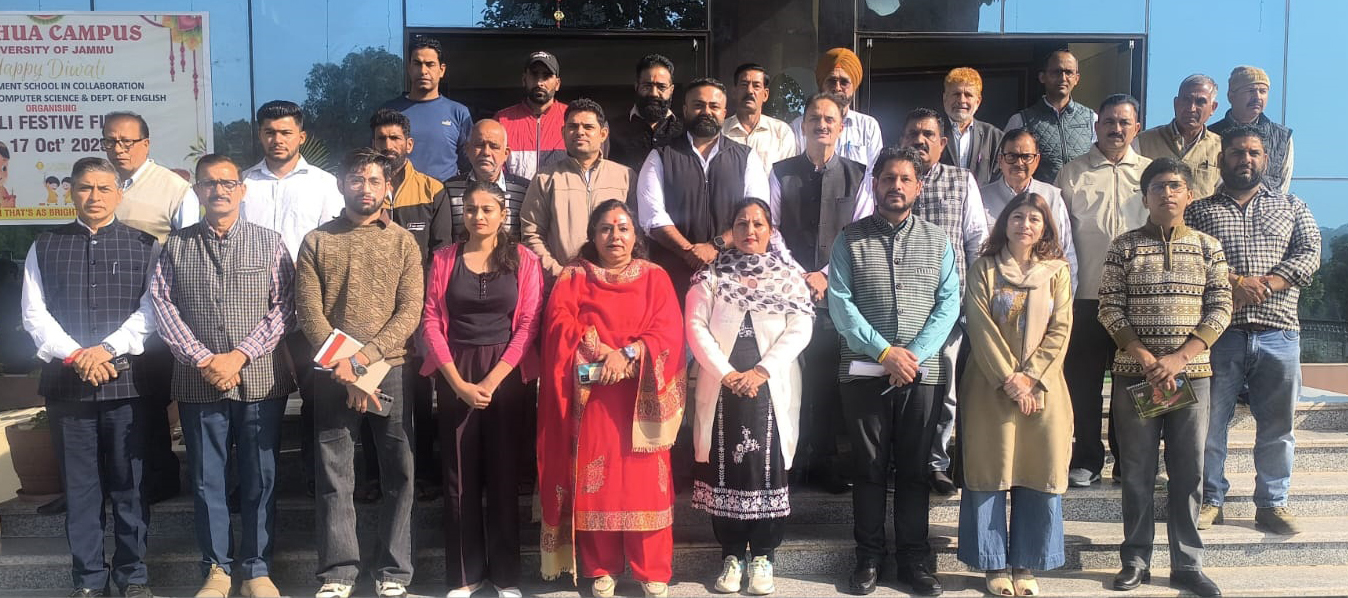 Early Times Report Early Times Report
KATHUA, Nov 16: A Focus Group Discussion (FGD) was organized at the Kathua Campus, University of Jammu, as part of an ICSSR-sponsored research project titled "Constitutional Reforms and Marginalized Groups: A Socio-Legal Study in Reorganised Jammu and Kashmir." The discussion revealed broad acknowledgment of significant improvements in the rights and opportunities available to marginalized communities in Jammu and Kashmir after its reorganization. It also identified key administrative challenges that require urgent attention.
The session brought together diverse voices, including people displaced from POJK, West Pakistan Refugees, Scheduled Caste communities, and women. Participants highlighted a transformative shift in their socio-legal status post-2019 with improvements in land ownership rights, political representation, access to centrally sponsored schemes, and enhanced employment and educational opportunities. Representatives of the Scheduled Caste community appreciated the inclusion of the historically disenfranchised Valmiki community, marking an important step toward social justice. Participants also emphasized the need for greater awareness of the benefits and programs now available to these communities.
Despite the progress noted, several operational hurdles persist. These include delays and procedural barriers in granting land ownership rights, regularizing colonies, ensuring smooth disbursement of one-time settlement packages, and securing effective reservation benefits in educational institutions. Remarkably, all participants unanimously recommended the establishment of a dedicated Welfare Board for displaced communities. They argued that such a board would streamline rehabilitation and reintegration efforts, ensuring that government initiatives are implemented comprehensively and within defined timelines.
Project Director Professor Arvind Jasrotia stated, "The insights from today's discussion are invaluable. While the constitutional reforms have undoubtedly created a new framework of equality, the lived experiences of these communities show that the journey from law to ground-level reality requires continuous monitoring and empathetic governance. The consensus on a Welfare Board is a crucial finding of our research."
The FGD was conducted by the research team comprising Professor Jasrotia, Dr. Gazala Noor, and Dr. Nitan Sharma. On-ground support was provided by Dr. Pankaj Khajuria (AR) and Ritika Gupta, with active participation from various organizations working for the refugees, displaced and SC communities, and their members which include Ravi Kumar, Bhushan Sharma, Kewal Bali, Babu Ram Sharma, Joginder Paul, Rahul Hans, Suman Bala, Sushma Sharma, Anil Kumar, and others. |
